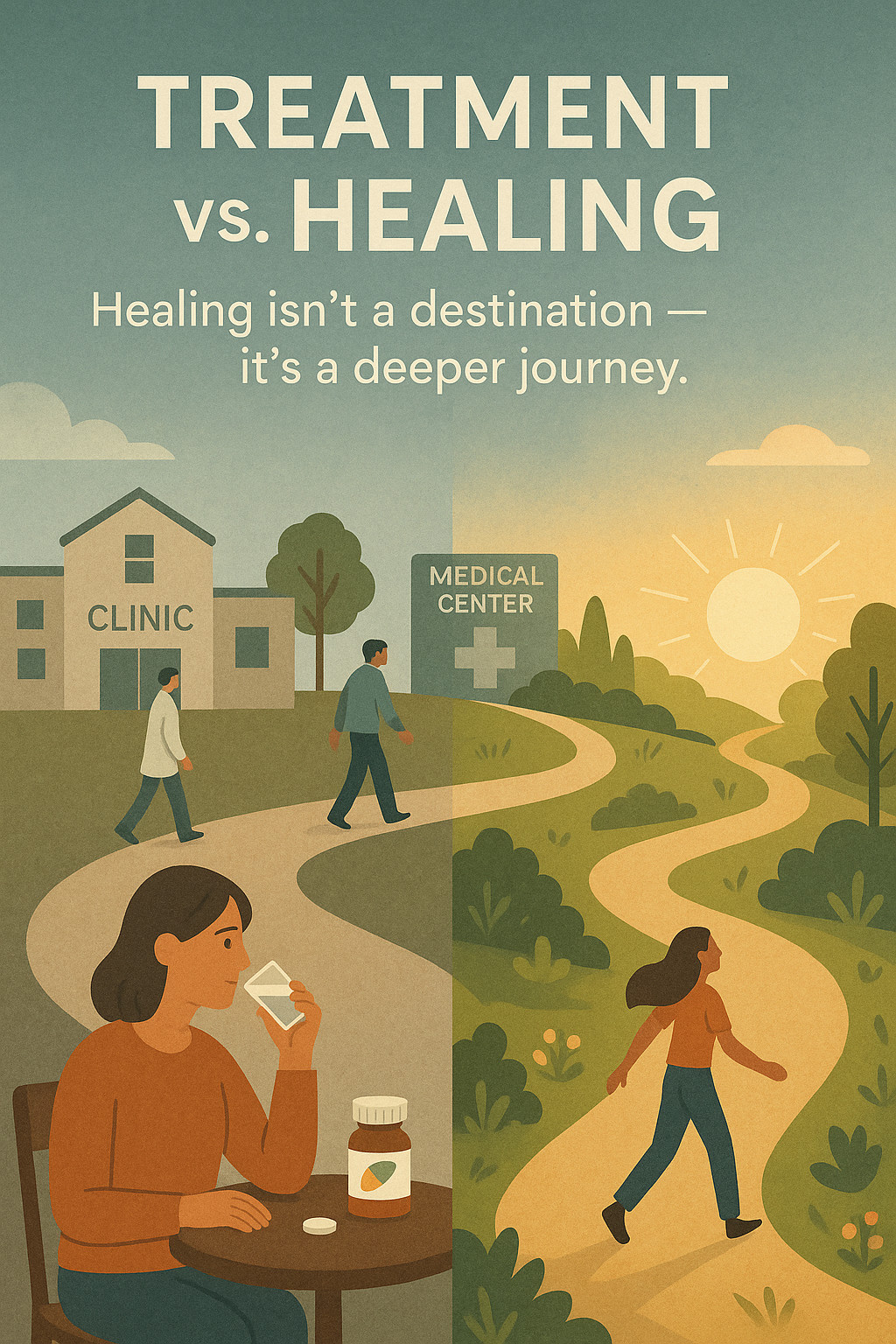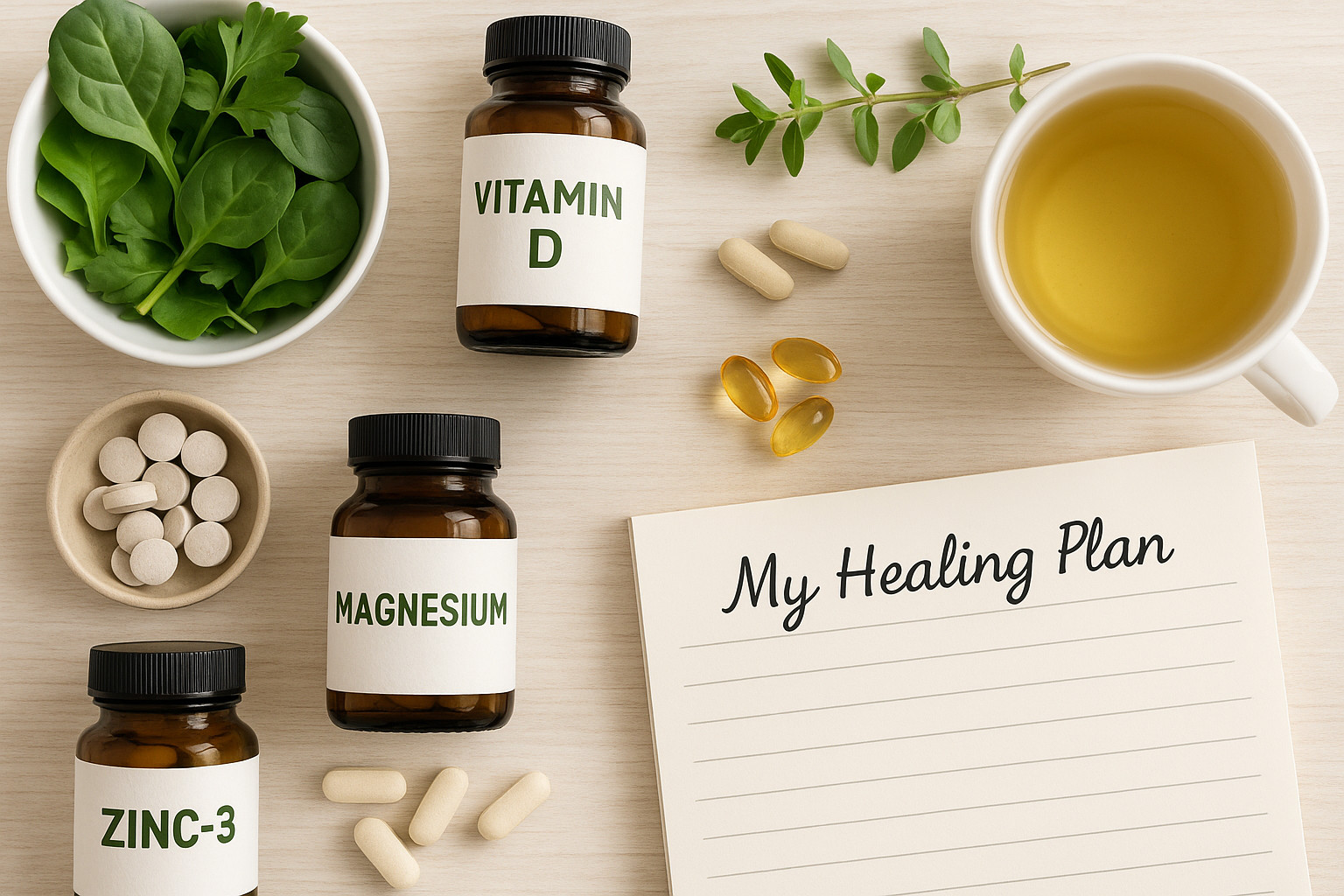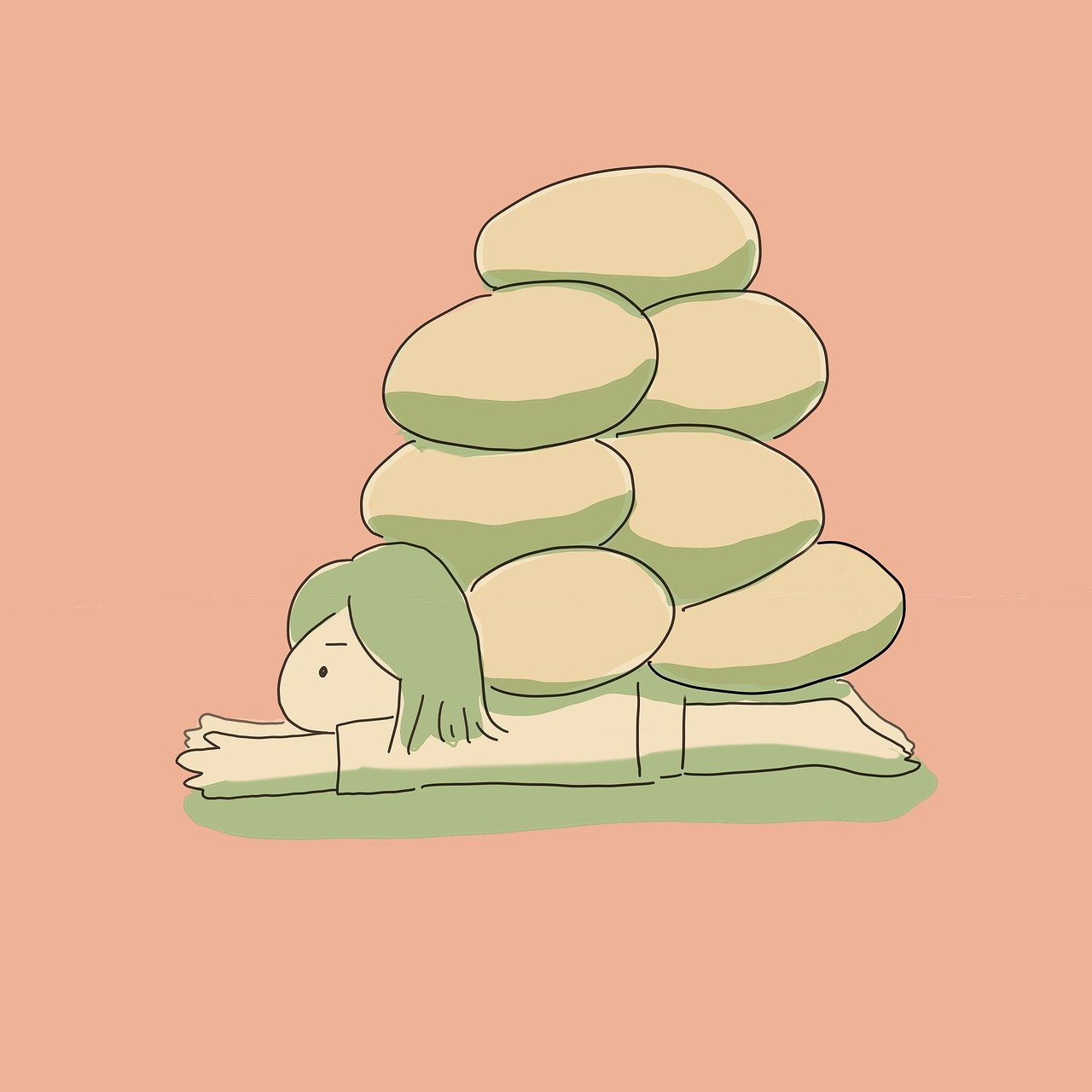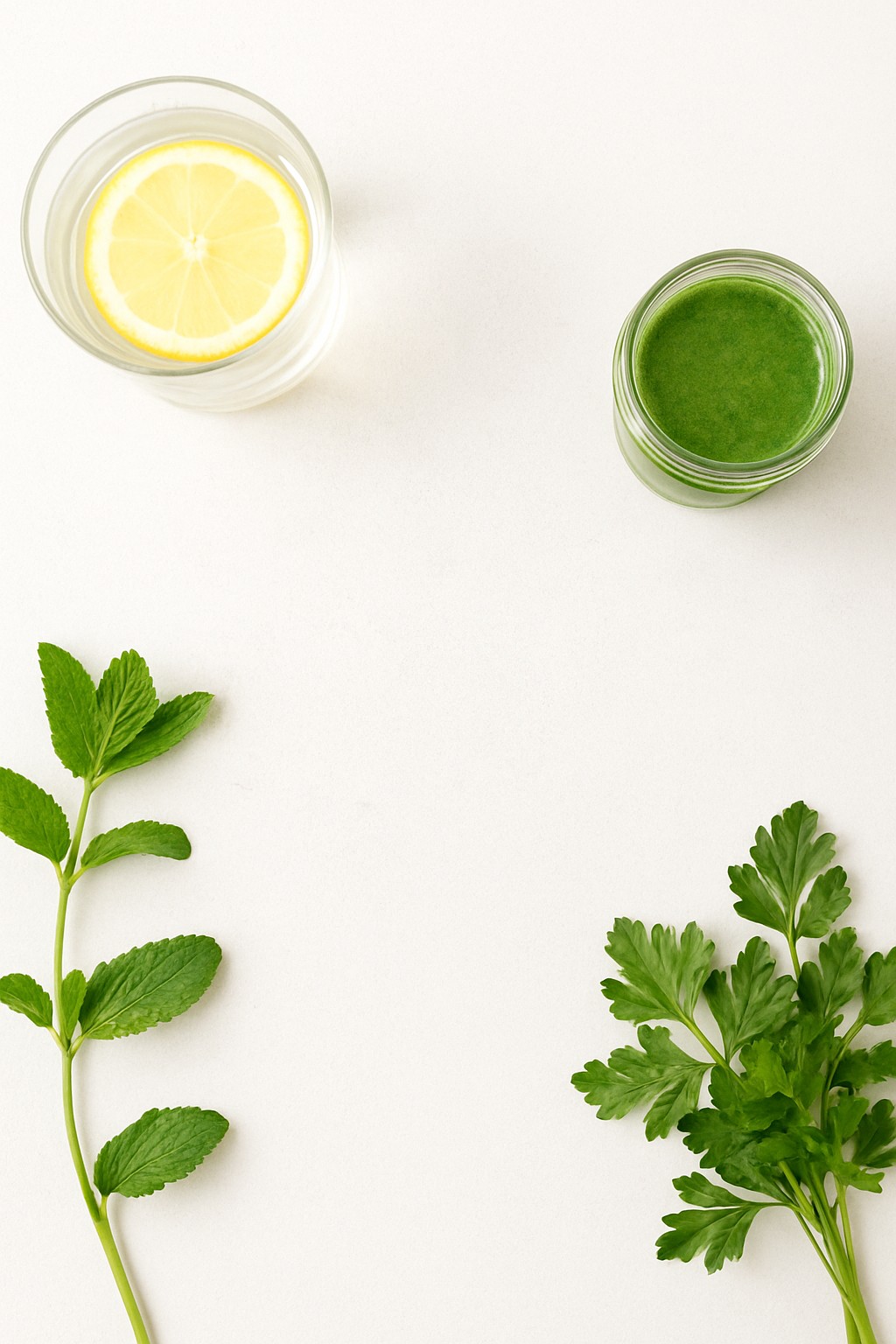
When I was diagnosed with ITP back in 2003, I knew nothing about autoimmune disease, toxins, or liver health.
Like most of us, I trusted that what the doctors prescribed would simply “fix me,” and I believed that my immune system had somehow gotten broken. What I didn’t know then—and what I wish I had known much sooner—is that many holistic practitioners now believe autoimmune disease isn’t caused by a malfunctioning immune system at all.
Instead, they believe the immune system is responding exactly as it should to protect us from toxins and stressors that have made part of our body sick.
In the case of ITP, these toxins and stressors can burden the liver, disrupt cellular health, and ultimately trigger the immune system to remove what it perceives as “damaged”—including our platelets.
And that’s why cleansing matters.
The Holistic Perspective: Autoimmune Disease and Toxins
Holistic practitioners often ask a different question than conventional medicine:
“What is overwhelming the immune system in the first place?”
From this viewpoint, autoimmune conditions may begin when toxins accumulate faster than the body can clear them. These toxins can include:
- Heavy metals
- Medications and infusions
- Harsh ingredients in personal care products
- Artificial fragrances
- Processed and inflammatory foods
- Environmental pollutants
- Residue from chemotherapy or medical treatments
When these stressors overwhelm the liver—our body’s primary detox organ—it can become sluggish or “clogged.” A sluggish liver can’t properly filter toxins, and the immune system gets called in to help. For many of us, that was the beginning of our ITP journey.
My Detox Journey: What I Experienced
When I first began cleansing, I had no idea what my liver had been holding onto all those years. I had used fragranced lotions and soaps daily, had received vaccines and infusions, had taken medications, and had undergone chemotherapy. My body had been through a lot.
When I finally started detoxing, I experienced several noticeable symptoms:
- Fatigue
- Headaches
- Body aches
- Nausea
- Skin irritation
These weren’t random. And it didn’t mean something was wrong; just the opposite! They were signs that my liver was finally releasing toxins—but my elimination pathways were overwhelmed. When your body detoxes faster than it can eliminate waste, those toxins can exit through the skin, causing what seems like a skin reaction. I had this happen on a few occasions.
But something encouraging happened after I continued cleansing over the years:
My detox symptoms disappeared.
Over time, my liver was no longer sluggish, my body was no longer overloaded, and cleansing became much easier.
Do You Need a Liver Detox? Signs to Pay Attention To
If you’ve never done a cleanse before, the answer is almost always yes.
Even though the liver is a self-cleaning organ, it can still become congested from years of exposure to chemicals, stress, medication, and processed foods.
Consider these symptoms as signs that the liver may need support:
- Waking up consistently between 2:00–3:00am (the liver cleansing window in Traditional Chinese Medicine)
- Chronic fatigue
- Skin breakouts or rashes, including eczema
- Hormonal imbalances
- Digestive issues
- Trouble losing weight
- Headaches or brain fog
Your liver plays a role in every major system of the body. When the liver struggles, everything struggles. Pay close attention to skin issues. Your skin is the outward manifestation of what is going on inside; especially with the gut and liver.
Where to Start: Simple First Steps for ITP Warriors
If you’re new to cleansing—or you’re feeling overwhelmed—start here:
1. Shift Your Nutrition
Begin with small, supportive steps that will help your body prepare for deeper cleansing:
- Increase antioxidants (I have a favorite antioxidant supplement I can suggest)
- Add more whole, unprocessed foods
- Reduce inflammatory ingredients (gluten, dairy, refined sugar)
- Drink more water
- Add a squeeze of lemon to your water
2. Remove Toxins From Your Home
This step is so overlooked, yet so powerful.
This alone reduces the burden on your liver every single day.
Swap out:
- Artificial fragrances
- Toxic cleaning products
- Parabens + phthalates
- Personal care items that are full of disruptors
- Conventional candles, air fresheners, and detergents
3. Support the Liver With Targeted Foods & Supplements
The right support can make cleansing gentle and effective. Many options exist, including:
- Bitter greens
- Cruciferous vegetables
- Lemon water
- Milk thistle
- Dandelion
- Antioxidant-rich blends
- Gentle detox blends or essential oils (when used properly)
Why This Matters for ITP Warriors
If you’re living with ITP—or any autoimmune struggle—supporting your liver is one of the most foundational steps you can take.
Your cleansing journey doesn’t have to be extreme. It just needs to be consistent and intentional.
A healthy liver can help:
- Improve immune balance
- Support platelet health
- Reduce inflammation
- Clear chemical burdens
- Improve energy and sleep
- Strengthen overall wellness
I wish someone had told me this in 2003. It would have changed everything about my healing journey.
Ready to Learn More? Join Me in 2026
At the beginning of 2026, I’ll be offering a brand-new wellness program designed specifically for ITP warriors and autoimmune survivors who want to:
- Remove toxins from their lives
- Support their liver and immune system
- Rebuild their health naturally
- Understand the “why” behind their symptoms
- Create a simple, sustainable cleansing lifestyle
If you’d like to be added to the early interest list, just let me know. I’d love to support you on your healing journey.

In the 1950s, researchers at Harvard conducted a fascinating study with rats that revealed something far deeper than endurance—it uncovered the power of hope.
In the experiment, rats were placed in a container of water to see how long they could swim before giving up. On average, they lasted only about 15 minutes. But when researchers rescued them just before drowning, dried them off, let them rest, and then placed them back in the water, something incredible happened. The same rats swam for more than 60 hours.
What changed?
Not their muscles. Not their ability.
It was their belief that rescue was possible.
They had learned that help could come—and that hope changed everything.
How This Connects to Our Health and Faith
Like those rats, our health struggles can make us wonder: How long can I endure what I’m going through?
When I was facing ITP (Immune Thrombocytopenia), there were moments I felt like I was barely treading water. With no experience and no hope, I didn’t know if I had the strength to keep going. But through each trial—and each rescue—I learned something powerful.
It wasn’t about my own strength or ability to “swim.”
It was about the knowledge that rescue was possible.
Once we’ve been pulled from the water a few times, our hearts begin to draw a new conclusion: I can be saved. God can meet me here again.
Just as those rats swam longer after experiencing rescue, we too can endure longer when we know that God has delivered us before—and He will do it again.
As we see someone survive, that can build hope and resilience in us.
That’s why sharing our testimonies matters so much. When you see someone rise out of a health battle—when you see someone walk through ITP and find healing naturally and spiritually—it plants hope in your heart that you can rise too.
What We Feed Ourselves Determines Our Strength
In the Harvard study, the rats eventually did die after 60 hours. But it makes me wonder: did they really die of exhaustion… or of starvation?
We, too, can only endure for so long if we are not feeding ourselves properly—physically and spiritually.
- We need nourishment.
- We need truth.
- We need the Word of God to sustain us through long nights of waiting.
“But those who wait on the Lord will renew their strength;
they will mount up with wings like eagles;
they will run and not grow weary;
they will walk and not faint.”
— Isaiah 40:31
they will mount up with wings like eagles;
they will run and not grow weary;
they will walk and not faint.”
— Isaiah 40:31
When we feed on God’s promises, our endurance increases. We find that we can tread the waters of uncertainty a little longer—because we’re not relying on our own strength. We’re trusting the One who rescues.
From Struggle to Strength
Seeing how God brought me through ITP reminds me that He is always near and that no trial is wasted. Every time I’ve been “pulled from the water,” it prepared me to swim stronger the next time.
If you are struggling with low platelets, chronic illness, or any season of uncertainty—please remember: you are not forgotten.
God is near, even in the deep water. And because He is your rescuer, you can endure with hope.
God is near, even in the deep water. And because He is your rescuer, you can endure with hope.
Keep looking up.
Keep believing.
And keep treading—because your rescue is coming.
Keep believing.
And keep treading—because your rescue is coming.
🌿 For ITP Warriors Waiting on the Lord
If you’re walking through ITP or another autoimmune condition and you’re searching for strength—both naturally and spiritually—I’d love to walk with you.
In my community, Platelets, Plants, and Prayers, I share encouragement, natural wellness tips, and faith-filled hope for healing.
You don’t have to face the water alone.
Hope and healing are possible.
Hope and healing are possible.
💛 Want to be reminded that hope still wins?
My devotional, "Battles & Breakthroughs: Victory in Christ for Chronic Illness and Life's Toughest Battles", was written straight from my own seasons of deep water. Each daily entry and reflection is designed to lift your spirit, renew your faith, and remind you that God never wastes a battle.
My devotional, "Battles & Breakthroughs: Victory in Christ for Chronic Illness and Life's Toughest Battles", was written straight from my own seasons of deep water. Each daily entry and reflection is designed to lift your spirit, renew your faith, and remind you that God never wastes a battle.
Let these pages encourage your heart while you wait on the Lord.
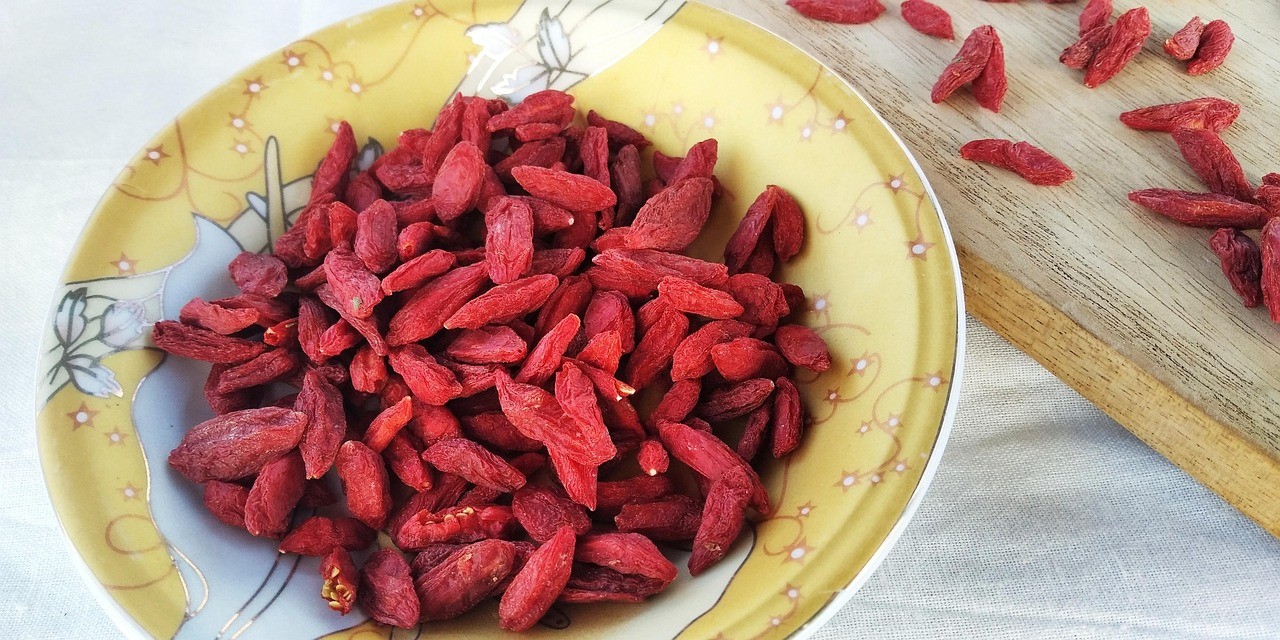
🩸 Wolfberries and Platelet Health: My Experience & What the Research Shows
When I was first diagnosed with ITP, I felt lost trying to figure out what foods and natural options were safe—or even helpful—for supporting my platelets. Over time, I discovered that some foods can play a supportive role, not as a cure, but as a way to strengthen the body and create a healthier environment for platelets to thrive.
One of those foods is the wolfberry (also called goji berry or Lycium barbarum). I’ve been using wolfberries daily for years, most often in juice form, and I’ve found them to be an encouraging part of my wellness routine. In fact, they’re one of the key features of my 11-Day Jumpstart protocol because of their nutrition, energy-boosting properties, and research-backed benefits for platelet health.
Why This Matters for ITP
If you’re new to ITP (immune thrombocytopenia), it’s an autoimmune condition where the immune system mistakenly destroys platelets. Since platelets are essential for clotting, low levels can cause bruising, bleeding gums, or other bleeding risks.
That’s why many of us are cautious about what we eat and what supplements we try—because some things can negatively impact platelets. But thankfully, research is showing that wolfberries may offer gentle, natural support in several ways.
What the Research Says
One particular study caught my attention: “Therapeutic Uses of Lycium barbarum Polysaccharides on Idiopathic Thrombocytopenic Purpura Mice via Inhibition of Oxidative Stress.”
While this research was done on mice, the findings are encouraging:
- Platelet Counts: The active compounds in wolfberries, called polysaccharides (LBP), were shown to raise platelet levels.
- Oxidative Stress: Wolfberries helped reduce oxidative stress—a type of damage that can worsen platelet destruction in ITP.
- Immune Support: They also appear to help balance the immune response, which is key since ITP is autoimmune in nature.
Other studies have confirmed wolfberries’ strong antioxidant properties, suggesting they may help protect platelets from damage and support overall immune health.
How I Use Them in Daily Life
For me, wolfberries aren’t just something I read about in a study—they’re something I actually use and enjoy every day. I like them in puree or juice form because it’s easy and convenient, but there are many ways to add them to your diet:
- Sprinkle dried berries over oatmeal, yogurt, or salads.
- Brew them in a tea.
- Add them to soups, rice, or stir-fries (a traditional use in some Asian cultures).
They’re widely considered safe in moderation, though as always, it’s a good idea to check with your doctor before making any changes.
My Encouragement to You
If you’re on an ITP journey, I know how overwhelming it can feel. The good news is there are safe, nourishing, natural options that may help support your body in the healing process. Wolfberries are not a magic fix, but they can be part of a diet and lifestyle that builds resilience, supports your immune system, and gives your platelets a healthier environment.
For me, wolfberries represent hope—a small but powerful step toward nourishing my body as I walk this path of healing.
✅ Key Takeaway: Wolfberries may support platelet health through their antioxidant and immune-balancing properties. They are safe, nutritious, and easy to add into everyday life, making them a gentle and encouraging option for those of us navigating ITP.
🌿 Ready to Take the Next Step?
If you’re looking for a simple way to nourish your body, reduce inflammation, and boost energy while supporting your platelets, my 14-Day Reset is a great place to begin. It’s a guided reset that focuses on clean eating, gentle detox, and daily habits that help your body thrive—wolfberries included!
If you’d like to learn more about the wolfberries or juice I personally use, feel free to reach out and connect with me. I’m always happy to share what’s worked for me and help you find options that fit your wellness journey.
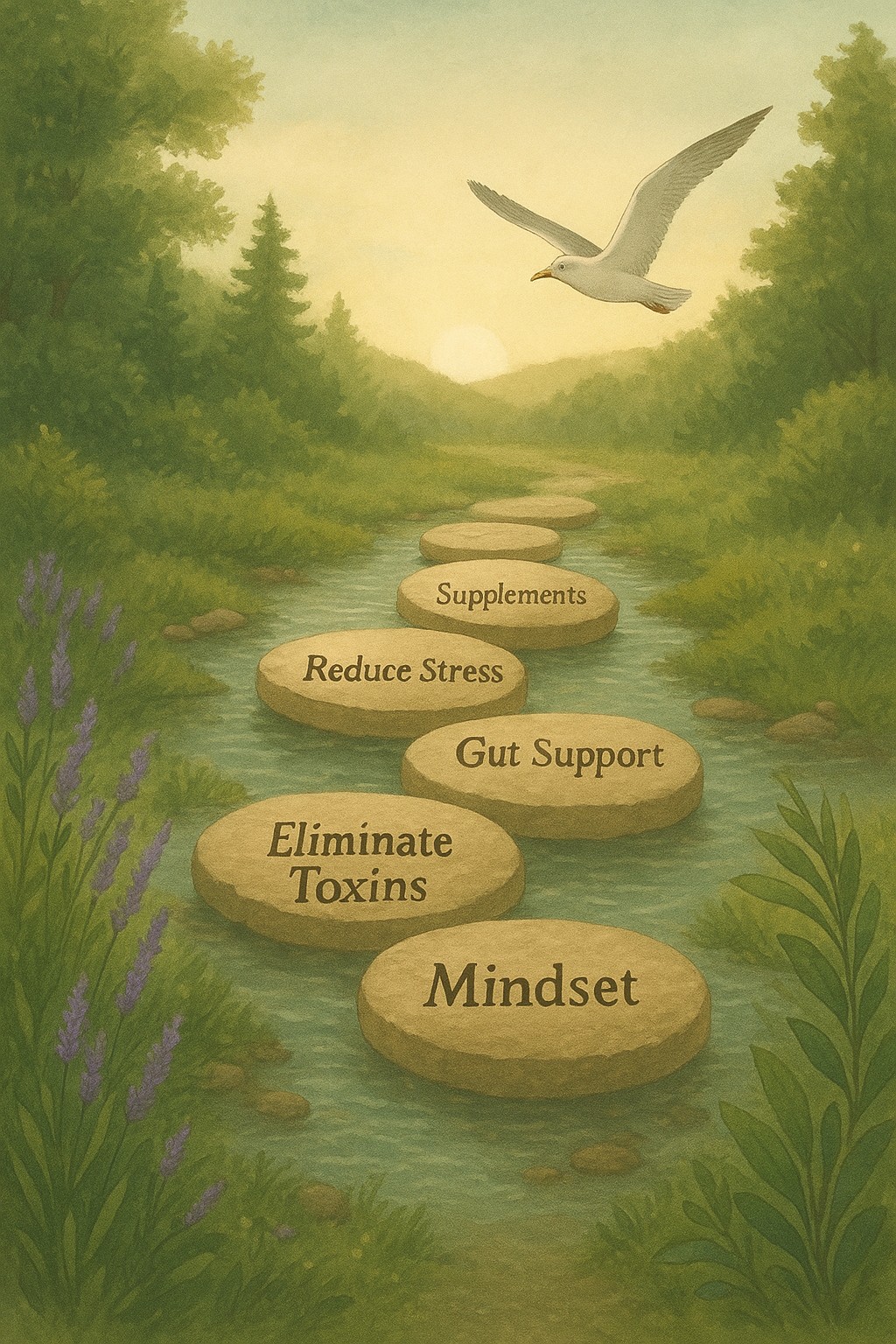
When I was first diagnosed with ITP (Immune Thrombocytopenia), my world turned upside down. My platelet count dropped, my energy was low, and I had more questions than answers.
I prayed for healing. I tried many traditional treatments. Some helped. Some did not. None were a permanent “fix”. I started trying natural treatments and gentle shifts in my lifestyle. This holistic approach that not only restored my platelet count but has kept me in remission. Over time, I was able to rebuild my immune system, so that even my lack of a spleen didn’t cause me to be compromised. I have identified 7 Core Pillars that made the biggest difference in my health and my life. These pillars work together, creating a strong foundation for lasting wellness.
Here’s what I discovered:
1. Nutrition
The foods we eat can either fuel our healing or feed inflammation. I began focusing on whole, nutrient-dense foods—rich in vitamins, minerals, and antioxidants—to support my immune system and overall health. I feel my best when I refrain from foods that are known for causing inflammation such as gluten, dairy, refined sugar, corn, seed oils, and processed foods. I focus on fresh fruits, vegetables, and meats.
2. Eliminating Toxins
From household cleaners to skincare, I realized that daily exposure to toxins could be taxing my immune system. I swapped out harmful products for safer, natural alternatives, lowering my toxic load and giving my body room to heal. It can feel overwhelming when we consider everything we use to clean our home and our body. Over time, I swapped one product at a time and I noticed a shift in my health and my hormones.
3. Reducing Stress
Stress can be a major trigger for autoimmune flare-ups. I learned to identify my stressors and adopted calming practices like prayer, gentle movement, breathing exercises, and setting healthy boundaries. Therapeutic use of essential oils became a powerful part of my medicine.
4. Supporting My Gut
So much of our immune system lives in the gut. I prioritized probiotic-rich foods, targeted supplements, and gut-healing habits to strengthen my microbiome and improve nutrient absorption—both essential for immune balance.
5. Detoxing My Liver
The liver plays a huge role in filtering toxins, balancing hormones, and supporting immunity. Many of the treatments I had received can play a role in taxing the liver, as well as the household toxins I was allowing in my environment. I began incorporating gentle liver-supporting foods and supplements to keep it functioning optimally, helping my body process and eliminate waste more effectively. A great help to the liver is to focus on pillar #2 and work on eliminating toxins.
6. Supplements
While food should be a foundation, certain high-quality supplements can help fill in nutritional gaps and give the immune system (and the platelets) targeted support. I chose supplements carefully—based on my lab work, symptoms, and guidance from practitioners who were experts in ITP.
7. Mindset & Faith
Healing isn’t just physical—it’s emotional, mental, and spiritual. I chose to believe that remission was possible, spoke life over my body, and anchored my hope in God’s promises. This mindset shift helped me stay consistent and positive, even on hard days. There is a difference in mindset between, “I’ll try this and see if it works” versus “I’m going to do this until it works.” I sometimes wonder if the healing path I chose worked because of the intention I put on it.
How These Pillars Work Together
No single change was the magic fix—it was the combination. Each pillar strengthened the others, building a resilient foundation for my health. And these are not “ITP-only” principles—they can be life-changing for anyone seeking to improve their wellness and live in vibrant health. Healing any chronic condition naturally is a “long-game”. We want to try something and see a result right away. It is easy to get discouraged when it doesn’t happen right away. My encouragement for all Wellness Warriors is to stay the course and continue believing that healing is possible.
View a Video of My FREE Workshop
If you want to learn exactly how I implemented these 7 Core Pillars—and how you can start building them into your life—I hosted a free workshop where I walk you through each one, share my personal strategies, and help you identify your next steps.
Watch the Replay here: ITP WORKSHOP

Why I Believe Remission from ITP Is Possible: My Healing Manifesto of Faith and Hope
If you’re living with ITP and wondering if healing is even possible, you’re not alone. I’ve been there too—scared, overwhelmed, and unsure where to turn. But today, I stand on the other side of that valley, in remission, with a message burning in my heart:
Healing is possible.
Not just symptom relief. Not just temporary remission. True, deep, life-changing healing.
Not just symptom relief. Not just temporary remission. True, deep, life-changing healing.
This is my personal healing manifesto—what I believe, what I’ve lived, and what I want you to know as you search for answers and hope.
I Believe the Body Was Made to Heal
Even when lab reports look grim, I believe your body is not broken—it’s communicating. Low platelets don’t mean your immune system has failed. It means it’s asking for help, for restoration, for a chance to reset.
I learned to stop fighting my body and started listening to it.
I Believe in Root-Cause Healing, Not Just Immune Suppression
Most conventional ITP treatment plans focus on suppressing the immune system. And while there may be moments where that’s necessary, I don’t believe that’s the only—or best—way.
I believe in working with the immune system:
- Removing toxic triggers
- Supporting the gut and liver
- Reducing inflammation
- Nourishing the body through anti-inflammatory foods and essential nutrients
For me, this meant combining natural therapies, nutrition, and lifestyle changes grounded in faith and intention.
I Believe in the Power of Faith
I didn’t walk this healing path alone. God was with me every step, guiding me to the right information, the right support, and the right mindset shift.
Healing from ITP is physical—but it’s also spiritual and emotional.
Fear and hopelessness are heavy burdens. But when we give those to God, we create space for peace, clarity, and healing to begin.
Fear and hopelessness are heavy burdens. But when we give those to God, we create space for peace, clarity, and healing to begin.
I Believe Words Matter
What we say over our bodies matters. For a long time, I repeated what I’d been told—“I’m sick. I have an incurable autoimmune disease.” But eventually, I started speaking life instead.
Now I say:
🟣 “I’m healed.”
🟣 “My body is resilient.”
🟣 “I serve a God who still heals.”
🟣 “I’m healed.”
🟣 “My body is resilient.”
🟣 “I serve a God who still heals.”
I Believe Remission Is Real
Not just for me. For you. For others.
I’m not a doctor, but I’m someone who’s lived this and walked into remission with God’s help and a natural healing plan that supported my body instead of suppressing it.
I’m not a doctor, but I’m someone who’s lived this and walked into remission with God’s help and a natural healing plan that supported my body instead of suppressing it.
My story isn’t the exception—it’s a reminder that there is hope.
You Are Not Alone
If you’ve just been diagnosed, if you’re feeling discouraged, or if you’re searching late into the night for anything that offers real answers—know this:
✨ You are not alone.
✨ You are not broken.
✨ There is hope.
✨ And healing is possible.
✨ You are not broken.
✨ There is hope.
✨ And healing is possible.
Want Support on Your Healing Journey?
I created a guide for those newly diagnosed with ITP (or feeling stuck in fear) that walks through natural and faith-filled approaches to support your platelets, reduce inflammation, and care for your whole body.
👉 [Download the ITP Guide here]
👉 [Download the ITP Guide here]
Or explore more blog posts on:
- [My favorite immune supporting food for ITP]
- [Reducing toxins that affect platelets]
- [Faith, mindset, and autoimmune healing]
You are deeply loved. Your body is capable. And your healing journey matters.


